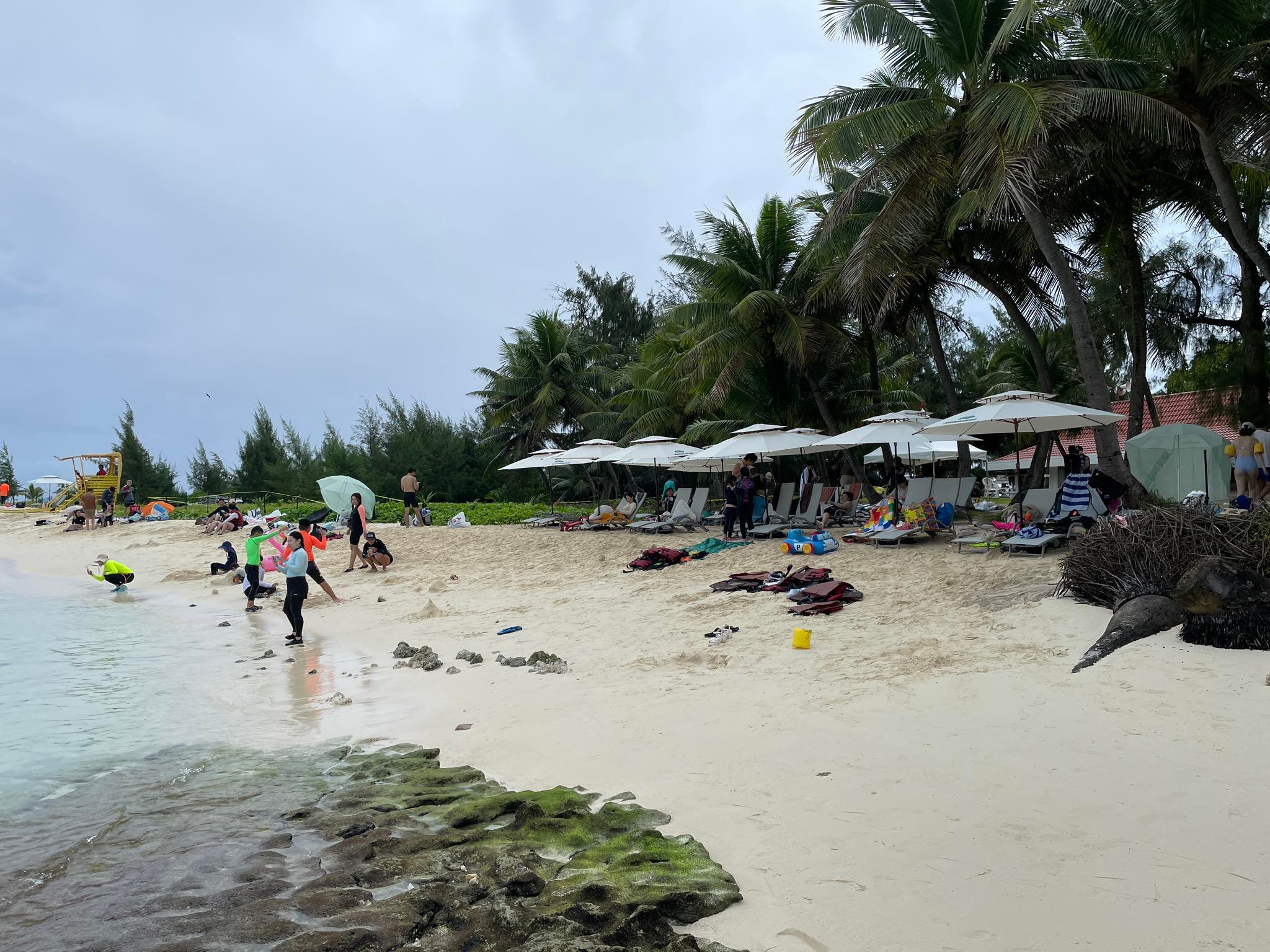DHS urged to revoke the NMI’s discretionary parole program
The CNMI faces the possibility of losing its discretionary parole program that allows it to let Chinese tourists enter the CNMI, now that some U.S. lawmakers have banded together to ask the U.S. Department of Homeland Security to mandate visa requirements across all territories.
This means that, if DHS consents to do this, all Chinese tourists seeking to enter the CNMI will be required to obtain a tourist visa first in a U.S. Embassy in China before being allowed to enter the CNMI.
Back in 2019, DHS authorized a discretionary parole program for the CNMI only, which essentially allows Chinese tourists to visit the CNMI for two weeks without having to obtain a non-immigrant visa.
This parole program has contributed significantly to sustaining the CNMI’s economy pre-COVID-19 as the CNMI heavily depends on tourism. Through the parole program, the CNMI’s China market made up over 40% of the CNMI’s tourism industry.
Now, with U.S. lawmakers championing a request to revoke this program by asking DHS to mandate the visa requirements across all territories, the CNMI faces the possibility of the China market completely collapsing, as previously warned by Gov. Arnold I. Palacios.
In a letter to DHS Secretary Alejandro Mayorkas, U.S. lawmakers raised their concern about the United States’ visa policy for Chinese nationals entering the CNMI.
“According to the U.S Department of State, a citizen of a foreign country who wishes to enter the United States must first obtain a visa, either a non-immigrant visa for a temporary stay, or an immigrant visa for permanent residence. Visitor visas are non-immigrant visas for persons who want to enter the United States temporarily for business (visa category B-1), for tourism (visa category B-2), or for a combination of both purposes (B-1/B-2). Currently, certain Chinese nationals are not required to obtain a B-1/B-2 visa to visit the CNMI—even though the islands are a United States territory. The CNMI is the only United States territory into which Chinese nationals can enter without a visa. Under the current requirements, Chinese national must meet extremely low standards in order to be granted entry into the CNMI from China. While specific details of this arrangement remain hidden from the public, it has been reported that individuals must only have a Chinese passport that is valid for six months after the intended stay, as well as be able to prove one’s intent to depart from the island within the 14-day window,” the letter stated.
To address these concerns, U.S. lawmakers have asked DHS to change this policy and apply visa requirements equally across territories.
“We encourage the U.S. Department of Homeland Security to change this policy and apply the visa requirements equally across territories. It is imperative we deter Chinese Communist Party aggression, espionage, and transnational repression. We strongly urge the implementation of a requirement to obtain a B-1/B-2 visa to enter the CNMI from China, putting the territory in line with this basic requirement enforced throughout the rest of the United States to ensure the safety of the homeland as a whole,” the letter added.
The lawmakers claim that the CNMI’s current policy on Chinese tourists has made the islands vulnerable to problems, including drug trafficking, illegal immigration, and organized crime.
“Just this year, the Guam Department of Labor sanctioned four companies in Guam found to be using illegal labor from China. Elsewhere, Chinese citizens were caught entering Saipan and then using messaging apps to coordinate illegal jobs and illegal boat rides to Guam, home to highly strategic U.S. military installations,” the letter said.
“Moreover, just last month, the U.S. Department of Justice prosecuted a case in which two Chinese nationals using the United States Postal Service for the distribution of methamphetamine in CNMI were sentenced to prison. We understand and applaud law enforcement officials on the islands who have been successful at capturing those who come to the CNMI for criminal reasons,” the letter added.
The lawmakers championing this request are U.S. Reps. James Moylan, Neal Dunn, Thomas Tiffany, W. Gregory Teube, Chris Smith, Randy Weber, Aumua Amata Coleman Radewagen, Guy Reschenthaler, Joe Wilson, Ronny Jackson, Andy Barrm Mike Ezell, Mike Gallagher, Michael Waltz, Blaine Luetkemeyer, John Moolenaar, Harriet Hageman, Ben Cline, Doug LaMalfa, Clay Higgins, Jim Baird, Jake LaTurner, John Rose, Ralph Norman, Michael McCaul, and Dan Newhouse, and Sens. Joni Ernst and Marco Rubio.

A file photo of Mañagaha Island. Chinese tourists frequented the tourism hotspot when they came in record numbers before the COVID-19 pandemic.
-MARK RABAGO






